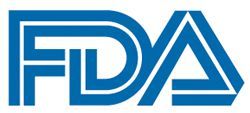News
Article
FDA Grants Fast Track Designation to MVR-T3011 for Pretreated Recurrent/Metastatic HNSCC
Author(s):
The oncolytic virus product MVR-T3011 has received FDA fast track designation for recurrent or metastatic head and neck squamous cell cancer.
FDA

The FDA has granted fast track designation to intratumoral injection (IT) of the oncolytic virus product MVR-T3011 for the treatment of patients with recurrent or metastatic head and neck squamous cell cancer (HNSCC) with disease progression after platinum-based chemotherapy and at least one prior line of anti–PD-1/PD-L1 therapy.1
The designation was supported by efficacy, durability, and safety results from several phase 1/2 trials conducted in both the United States and China.
"Attaining fast track designation from the FDA marks a pivotal milestone and underscores MVR-T3011 IT's capacity to address the substantial unmet needs of [patients with] HNSCC," Grace Guoying Zhou, chairwoman and chief executive officer of ImmVira, stated in a news release. "We are encouraged by the FDA's decision as it reflects the need for FDA-approved and widely available treatments for these patients. This designation will allow us to work closely with the FDA to quickly advance MVR-T3011 IT, to make a meaningful difference for patients who require new treatment options."
Approximately 15% to 20% of patients with HNSCC will experience benefit from treatment with an immune checkpoint inhibitor, according to ImmVira. Clinical data suggest that MVR-T3011 IT could meet this unmet medical need, as it has the potential to overcome immunosuppression and induce tumor shrinkage and control in patients whose disease previously progressed on a checkpoint inhibitor–based regimen.
As a genetically engineered 3-in-1 oncolytic herpes simplex virus type 1 complex, MVR-T3011 was designed to have replication potency in tumor cells and highly restricted replication in normal cells. Its ability to bolster immune responses in the tumor microenvironment is enhanced by the incorporation of a PD-1 antibody and IL-12 into this construct.
During the 2023 ASCO Annual Meeting, data from an ongoing phase 1/2a study (NCT05602792) in China evaluating MVR-T3011 as monotherapy were presented alongside findings from a phase 1/2a study (NCT04370587) of the agent administered alone or in combination with pembrolizumab (Keytruda) in the United States.2
In the monotherapy study in China, patients with solid tumors who received the recommended phase 2 dose (RP2D) of MVR-T3011 and were response evaluable (n = 55) achieved a confirmed overall response rate (ORR) of 11% and disease control rate (DCR) of 49% as of the January 18, 2023, cutoff. Among these, 12 patients with HNSCC who progressed after platinum-based chemotherapy and anti–PD-1/PD-L1 therapy achieved confirmed ORR of 25% and DCR of 50%. Moreover, 3 patients with HNSCC who achieved a partial response achieved a notable increase in tumor-infiltrating CD8-positive cell density.
The agent also demonstrated a favorable safety profile and clinical compliance. The most frequently observed treatment-related adverse effect among the 90 patients who received MVR-T3011 monotherapy was pyrexia, and no dose-limiting toxicities were reported.
Preliminary findings from the ongoing, United States–based study of MVR-T3011 showed that MVR-T3011 was safe and tolerable in patients with advanced solid tumors. The agent also demonstrated encouraging efficacy in patients with immune-resistant melanoma, with a confirmed ORR and DCR of 25.0% and 33.3%, respectively, as of January 17, 2023. No additional safety signals were observed with the combination therapy.
The open-label, first-in-human study being conducted in the United States is enrolling patients with melanoma, sarcoma, squamous cell carcinoma, non–small cell lung cancer (NSCLC), and HNSCC.3 In the phase 1 portion of this study, a single-agent dose escalation will be conducted using a 3+3 design to assess escalating doses of MVR-T3011. Total enrollment will be determined based on observed toxicities and/or activity, with approximately 15 to 30 evaluable participants expected to be enrolled. Once the RP2D is established, part 1 of phase 2a will commence. This phase will focus on evaluating the safety, tolerability, and preliminary efficacy of MVR-T3011 as a single agent.3
Part 2 of phase 2a will assess the safety, tolerability, and preliminary efficacy of MVR-T3011 IT plus pembrolizumab in 15 participants with histologically or pathologically confirmed metastatic NSCLC. Additionally, a rollover arm will be available for patients who experience documented progression on MVR-T3011 alone, allowing them to receive the agent in combination with pembrolizumab, if deemed eligible.
References
- ImmVira's oncolytic product MVR-T3011 IT Intratumoral Injection Receives FDA Fast Track Designation for HNSCC Treatment. News release. ImmVira. March 15, 2024. Accessed March 19, 2024. https://www.prnewswire.com/news-releases/immviras-oncolytic-product-mvr-t3011-it-intratumoral-injection-receives-fda-fast-track-designation-for-hnscc-treatment-302090155.html
- ImmVira presented latest encouraging clinical results of two proprietary products at ASCO 2023. News release. ImmVira. June 6, 2023. Accessed March 19, 2024. https://www.prnewswire.com/news-releases/immvira-presented-latest-encouraging-clinical-results-of-two-proprietary-products-at-asco-2023-301843794.html
- A clinical study of intratumoral MVR-T3011 (T3011) given as a single agent and in combination with intravenous pembrolizumab in participants with advanced or metastatic solid tumors. ClinicalTrials.gov. Updated August 29, 2023. Accessed March 18. 2024. https://classic.clinicaltrials.gov/ct2/show/NCT04370587









